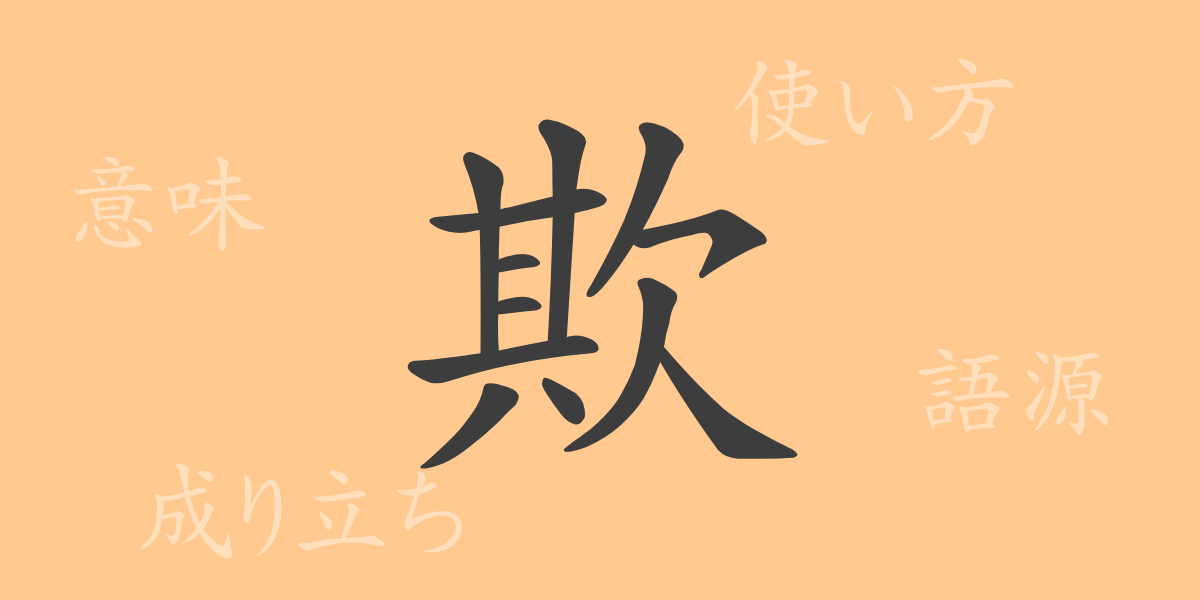Japan’s rich culture is reflected in its unique writing system. Kanji are ideograms with deep meanings in their shapes and sounds, making them an essential element of Japanese expression. The focus of this article is “欺” (gi), a character that, though not commonly used in daily life, symbolizes the depth of the Japanese language. This article explores the origins, meanings, usage, idioms, and proverbs of the kanji “欺” (gi).
Origin of the Kanji “欺” (語源)
The kanji “欺” (gi) has its origins in ancient China. It is composed of the radical “欠” (ketsu) on the top, meaning “to lack” from “mouth,” and “其” (ki) on the bottom, referring to “that” or “it.” Therefore, “欺” (gi) signifies lacking the original meaning, essentially “to deceive” or “to cheat.” It has been used since ancient times to represent acts of deceit.
Meaning and Usage of “欺” (gi)
The kanji “欺” (gi) means to deceive or cheat someone. It particularly refers to actions that intentionally mislead others or pursue personal gain through dishonest means. This kanji is often used in legal language or to convey moral lessons.
Reading, Stroke Count, and Radical of “欺” (gi)
The basic information of the kanji “欺” (gi) is as follows:
- Reading: The on-yomi (Chinese reading) is “ギ” (gi), and the kun-yomi (Japanese reading) is “あざむく” (azamuku).
- Stroke count: 12 strokes in total.
- Radical: The radical is 欠 (けん, ken).
Idioms, Proverbs, and Expressions Using “欺” (gi)
Idioms, proverbs, and expressions that include “欺” (gi) are often used to convey warnings due to its strong connotations. For example, “欺瞞” (ぎまん, giman) means deception or falsehood, referring to lies or schemes to deceive others. The proverb “欺く者は欺かれる” (azamuku mono wa azamukareru) teaches that those who deceive will eventually be deceived themselves, reflecting the principle of karma.
Summary on “欺” (gi)
Although the kanji “欺” (gi) is not frequently used, it plays an important role in conveying moral values and the complexities of human relationships. Understanding and appropriately using this character is essential for enhancing the richness of Japanese expression. We hope that this exploration helps readers appreciate the depth of meaning in “欺” (gi) and deepens their understanding of the Japanese language.

























